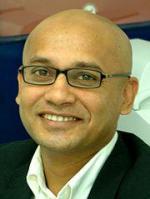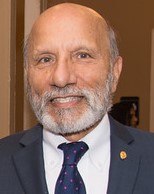Related Research Articles
Engineering management is the application of engineering methods, tools, and techniques to business management systems. Engineering management is a career that brings together the technological problem-solving ability of engineering and the organizational, administrative, legal and planning abilities of management in order to oversee the operational performance of complex engineering-driven enterprises.

Shenyang Ligong University (SYLU) is a university in Shenyang, Liaoning, China under the provincial government. Its campus is in a new district of Hunnan New District.
The Institute of Electrical and Electronics Engineers Standards Association is an operating unit within IEEE that develops global standards in a broad range of industries, including: power and energy, artificial intelligence systems, internet of things, consumer technology and consumer electronics, biomedical and health care, learning technology, information technology and robotics, telecommunication, automotive, transportation, home automation, nanotechnology, information assurance, emerging technologies, and many more.
Technology forecasting attempts to predict the future characteristics of useful technological machines, procedures or techniques. Researchers create technology forecasts based on past experience and current technological developments. Like other forecasts, technology forecasting can be helpful for both public and private organizations to make smart decisions. By analyzing future opportunities and threats, the forecaster can improve decisions in order to achieve maximum benefits. Today, most countries are experiencing huge social and economic changes, which heavily rely on technology development. By analyzing these changes, government and economic institutions could make plans for future developments. However, not all of historical data can be used for technology forecasting, forecasters also need to adopt advanced technology and quantitative modeling from experts’ researches and conclusions.

Design management is a field of inquiry that uses design, strategy, project management and supply chain techniques to control a creative process, support a culture of creativity, and build a structure and organization for design. The objective of design management is to develop and maintain an efficient business environment in which an organization can achieve its strategic and mission goals through design. Design management is a comprehensive activity at all levels of business, from the discovery phase to the execution phase. "Simply put, design management is the business side of design. Design management encompasses the ongoing processes, business decisions, and strategies that enable innovation and create effectively-designed products, services, communications, environments, and brands that enhance our quality of life and provide organizational success." The discipline of design management overlaps with marketing management, operations management, and strategic management.
The following outline is provided as an overview of and topical guide to business management:
David Allen Hounshell is an American academic. He is the David M. Roderick Professor of Technology and Social Change in the Department of Social and Decision Sciences, Department of History, and the Department of Engineering and Public Policy at Carnegie Mellon University. He is known for his work of the history of research and development and industrial research in the United States, particularly at DuPont.
Daniel Berg is a educator, scientist and was the fifteenth president of Rensselaer Polytechnic Institute.
Enterprise engineering is the body of knowledge, principles, and practices used to design all or part of an enterprise. An enterprise is a complex socio-technical system that comprises people, information, and technology that interact with each other and their environment in support of a common mission. One definition is: "an enterprise life-cycle oriented discipline for the identification, design, and implementation of enterprises and their continuous evolution", supported by enterprise modelling. The discipline examines each aspect of the enterprise, including business processes, information flows, material flows, and organizational structure. Enterprise engineering may focus on the design of the enterprise as a whole, or on the design and integration of certain business components.

Industrial engineering is an engineering profession that is concerned with the optimization of complex processes, systems, or organizations by developing, improving and implementing integrated systems of people, money, knowledge, information and equipment. Industrial engineering is central to manufacturing operations.

Soumodip Sarkar is an economist and management scholar.
An enterprise planning system covers the methods of planning for the internal and external factors that affect an enterprise.
Reinhilde Veugelers is a Belgian economist and Professor of Managerial Economics, Strategy and Innovation at the Katholieke Universiteit Leuven from Belgium, known for her research on science and innovation. She is also a scholar at Bruegel in Brussels and at the Peterson Institute for International Economics in Washington D.C.
Junichi Iijima, Japanese, Enterprise Engineer and Professor of the Department of Industrial Management and Engineering at the Tokyo Institute of Technology in Japan.
Catherine Liston-Heyes is a Canadian economist, professor at the University of Ottawa and director of its Graduate School of Public and International Affairs. particularly known for her work on Competition and regulation.
Thorsten Teichert is a German economist and Professor of Business Administration, especially marketing and innovation at the Faculty of Economic and Social Sciences of the University of Hamburg.
Jack R. Meredith is an American engineer, organizational theorist, management consultant and Professor of Management at Wake Forest University, known for his work on project management.

The Science and Technology Information Center (STIC) is an Ethiopian organisation which provides information to support scientific and technological (S&T) activities in the country. STIC has published information on the financing of research and development and on the nature and progress of innovative projects, and in 2014 was planning to introduce bibliometric monitoring of publications in S&T. The center has also provided information and communications technology facilities including a digital library, a patent information system, an automated personnel management system, and a S&T-related database.

A.D. Amar is an Indian-American scholar, researcher, author and educator of knowledge in organizations. Since 2001, he has been working to compile knowledge from academic, business, and millennia-year-old manuscripts for developing knowledge applications for managing organizations. To this end, he organized many scholarly and applications activities by bringing experts, thought leaders, and the learned from India and other parts of the world to cover wisdom as the goal of knowledge and how to adapt it for managing organizations. It includes knowledge of self, others, and societal entities. It covers intrinsic motivation, training, and control of mind, and the development of behavior, especially related to work. He has carried out research and disseminated it in these and other management areas at professional levels using the platforms of the prominent global professional and scholarly societies such as the Academy of Management (AOM), the International Federation of Operational Research Societies (IFORS), and the Association of European Operational Research Societies (EURO). For his contributions, initiatives, and achievements, he has received many honors and is listed among the Harvard Business School Profiles in Business and Management, International Directory of Scholars and Their Research of the Harvard Business School Publishing, Who's Who in Frontiers Science and Technology, among others.

Sven Ove Granstrand is a Swedish economist and management scholar known for his contributions to the field of industrial economics, particularly on technological change, innovation and intellectual property rights.
References
- ↑ Ma, Zhenzhong, Yender Lee, and Kuo-Hsun Yu. "Ten years of conflict management studies: themes, concepts and relationships." International Journal of Conflict Management 19.3 (2008): 234–248.
- ↑ Ramos-Rodríguez, Antonio-Rafael, and José Ruíz-Navarro. "Changes in the intellectual structure of strategic management research: A bibliometric study of the Strategic Management Journal, 1980–2000." Strategic Management Journal 25.10 (2004): 981–1004.
- ↑ Dangayach, G. S., and S. G. Deshmukh. "Manufacturing strategy: literature review and some issues." International Journal of Operations & Production Management 21.7 (2001): 884–932.
- 1 2 3 4 Enterprise Engineering Research at Royal Holloway Archived 26 October 2013 at the Wayback Machine . Accessed 20 October 2013.
- 1 2 3 Alan Pilkington: Professor at Copenhagen Business School. Linked-in profile. Accessed 20 October 2013.
- ↑ Alan Pilkington, at SP Jain
- ↑ "Pilkington, Professor Alan - About us - University of Westminster, London". www.westminster.ac.uk. Retrieved 12 September 2017.
- ↑ Alan Pilkington, at IEEE
- ↑ Alan Pilkington, at Academia
- ↑ Alan Pilkington, at Royal Holloway, University of London
- ↑ "Engineering School | Find Top Engineering Programs". Archived from the original on 3 September 2011. Retrieved 10 October 2013.
- ↑ Pilkington, Alan, Romano Dyerson, and Omid Tissier. "The electric vehicle:: Patent data as indicators of technological development." World Patent Information 24.1 (2002): 5–12.
- ↑ Alan Pilkington publications indexed by Google Scholar